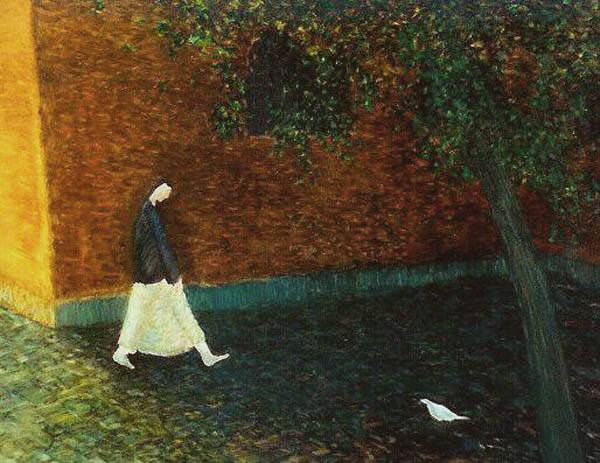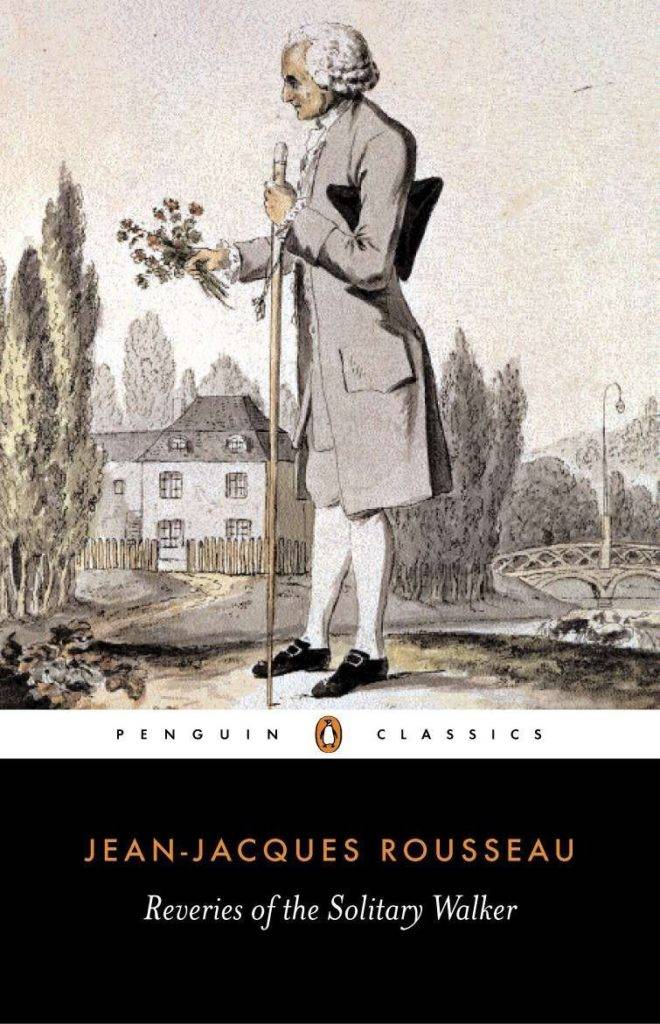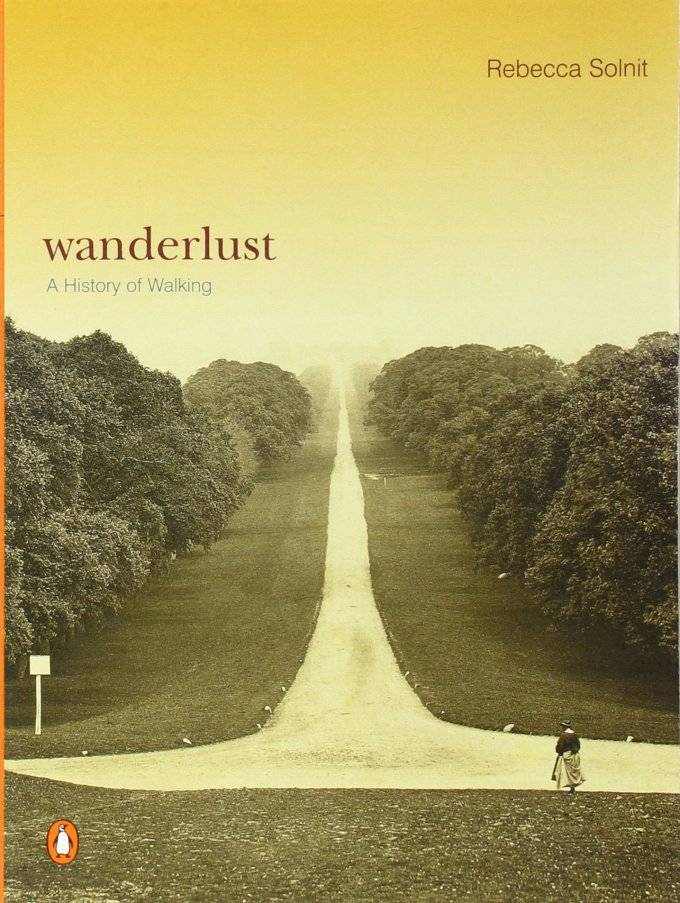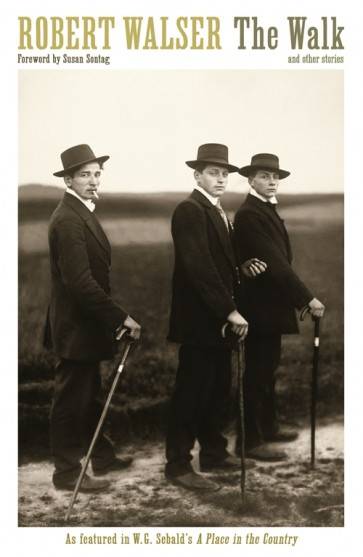‘‘Go for a walk to find yourself”
– Dr. Omkar Bhatkar

“At last he went back to his old habit of spending most of his time at his office in Jesse Hall. He told himself that he should be grateful for the chance of reading on his own, free from the pressures of preparing for particular classes, free from the predetermined directions of his learning. He tried to read at random, for his own pleasure and indulgence, many of the things that he had been waiting for years to read. But his mind would not be led where he wished it to go; his attention wandered from the pages he held before him, and more and more often he found himself staring dully in front of him, at nothing.”
This is an excerpt from Stoner written by John Williams in 1973; one of my favourite novels and it tells the story of William Stoner who enters the University of Missouri at nineteen years of age to study agriculture. Later, he becomes a teacher. He marries the wrong woman. His life is quiet and, after his death, his colleagues at the University remember him rarely. William Stoner’s life is the story of most passionate teachers around. Stoner spent an immoderate amount of time in planning for his class, scrutinising his students’ assignments and guiding them in every way possible; he was a dedicated teacher. He was so much of a teacher that very soon he forgot about his existence beyond that. His likes, dislikes, inclinations, pain or glories beyond being a teacher were hardly remembered. But does Stoner realise that he is also something beyond being a teacher?
In this essay, I have attempted to put down my thoughts on ‘the well-being of a teacher’ and how it could be taken care by going out for a walk. I have put together some of my favourite authors and paintings who have also expressed it in their works.
It is noticeable that an accountant does not bring his accountancy home nor does a labourer from the industry bring his blue uniform home; the security does not guard his own home and the painter does not paint the dinner table. But a teacher will carry home assignments to check, question papers to set, answer sheets to assess, a pile of books to prepare for the class, the student’s attendance sheet to tally and what not! More often than not, this ends up on the dinner table if there is no separate space to do school work at home. The term ‘school work at home’ itself sounds like a paradox. One might argue over what is new about it, even the CEO of the office carries work home and sometimes even the manager. If that’s the case, then the teaching job is not the 5-hour job as it appears to be, it is much more than that. A teacher remains a teacher even out of school or college often carrying the burdens of school work on their head and soon drowning themselves under this burden.
Teachers love teaching and are passionate about it but being a teacher is not only about teaching a 1-hour class on Buddhist Ethics or quadratic expressions. There is much more that goes into teaching. Along with good moments of teaching, there are several moments which require an understanding of oneself to be able to deal with it. There are students we get attached to, there are divisions which do not inspire us; at times, there are subjects forced upon us to teach, syllabi that change without giving us enough time to prepare and, most often, the realisation that what we have to teach in the new syllabus is utterly impractical, unnecessary and drab. (A sincere teacher here goes out of the way to make it practical, necessary and interesting.)
As if this is not enough, there are administrative duties, pressure from parents and most often from the management and the system at large, following strange rules made without the consent of all, odd roles to be played such as planning a farewell along with preparing for a class on ecosystem, to teach and hold the attention of the students whose attention span is reducing every day, to be punctual, to dress well, to speak politely, to have manners, etiquettes, political stands and, above all, be generous. To be a teacher demands a kind of perfection that we think is possible. More often than not, we are fooling ourselves when we strive to achieve perfection. And in this race to be the perfect role model, we are constantly trying to be someone else. In this rat race to be the perfect teacher, we often spend long hours preparing a PowerPoint on the history of the Mauryan dynasty or designing cue cards for the geography class or checking assignments rigorously so that our red pen does not make mistakes in marking or even talking to students during breaks and then not eating lunch in order to be on time for the following class.

Amidst all this, do we ignore ourselves? Do we really make time to read what we want to read? Do we make time to cook a meal we have been planning to make? Do we take assignments home to check and end up ignoring our loved ones or even taking them for granted? Do we dress for perfection? Do we go for a walk or do we come running to prepare for next class? And when we are home drinking our cup of tea, do we think about why our class is so careless? And when on our way back, are we discussing with our colleague how our supervisor is implementing new policies which we think are unnecessary? Even when we wake up early for school, very often we have to miss breakfast so that we do not miss the train or bus and reach on time for the assembly. In fact, in the morning, we have no time to even choose our dress, which is why we keep it ready the previous night. This is how busy we are that we do not even get to see the blue skies and feel the warmth of the morning sun. This schedule distances us from enjoying the blissful mornings and, in no time, we stop observing the little joys of life and nature. Like Charlie Chaplin’s Modern Times, even the teacher’s life has become nothing but a conveyor belt. There can be situational solutions to this. But everybody is different and different things work on different bodies. Yes, it is also about the body as much, it is of the mind, an amalgamation of the ‘self’.
This self needs to be cared for so that one is able to care about others. The need of the hour in times of crisis is to discover oneself. But during stressful times, finding oneself is not easy. It is like finding the way in the storm. Finding your way in a storm, you will always end up losing the path you have. One has to wait for the storm to subside and then choose a path to find your way.

Most teachers sacrifice themselves too much under the weight of teaching being a noble profession. If teachers sacrifice too much, then there is nothing they would be able to give to the world. Needless to mention, this is often a thankless job in modern times. At such times, one has to replenish themselves. Disconnect from the world to connect to yourself. Once again, make an attempt to discover your heart. Once you discover your heart, it is like discovering a fire torch and you can light the way for yourself and others who follow you. This light is found by you but, on your path, you share it with many others so that they can take some light with themselves for their own paths. After walking for some time giving this light to others, one realises that the light is gone and now the only way is to pause and think about whether you can create light there or walk a little to find or to create another light. A teacher’s life is about continually renewing and finding yourself so that you help others find themselves. A teacher cannot be just a teacher, a teacher has to be a learner first and teacher second. Lessons of life are learnt until we die and therefore we should never cease to be a student of the school called life. As Maya Angelou puts it, “As you grow older, you will discover that you have two hands, one for helping yourself, the other for helping others.”
Often, what has helped me as a quick fix is a walk. Walking is a remedy that often works in times of stress. Walking aimlessly when one is stressed calms the mind, body and the soul. Like Hippocrates puts it, “If you are in a bad mood, go for a walk. If you are still in a bad mood, go for another walk.”
Les Rêveries du Promeneur Solitaire (Meditations of a Solitary Walker), an unfinished manuscript composed between 1776 and 1778, is one of the last works of Jean-Jacques Rousseau. He died 3 months short of completing the 10 “walks” that comprise Rêveries. “I am devoting my last days to studying myself,” he wrote. The result is remarkable, the work of a man who felt himself rejected by society turned in on himself. The work is a powerful meditation on the quest for self-care. Rousseau felt rejected by society or you could say that he reached his mid-life crisis. But reaching the forties milestone, he analysed the stock of his life while taking walks in isolation. On his third walk, he writes:
“Since the days of my youth I had fixed on the age of forty as the end of my efforts to succeed, the final term of my various ambitions. I had the firm intention, when I reached this age, of making no further effort to climb out of whatever situation I was in and of spending the rest of my life living from day to day with no thought for the future. When the time came, I carried out my plan without difficulty and, although my fortune at that time seemed to be on the point of changing permanently for the better, it was not only without regret but with real pleasure that I gave up these prospects.
In shaking off all these lures and vain hopes, I abandoned myself entirely to the nonchalant tranquillity which has always been my dominant taste and more lasting inclination. I quit the world and its vanities, I gave up all finery—no more sword, no more watch, no more white stockings, gilt trimmings and powder, but a simple wig and a good solid coat of broad cloth—and what is more than all the rest, I uprooted from my heart the greed and covetousness which gave value to all I was leaving behind. I did not confine my reformation to outward things. Indeed, I became aware that this change called for a revision of my opinions, which although undoubtedly more painful was also more necessary, and resolving to get it all over at once, I set about a strict self-examination which was to order my inner life for the rest of my days as I would wish it to be at the time of my death.”
Thus, it is a walk that provides the mind with an understanding of the self. We are living in a culture of workaholism to which there is no full stop. Like a conveyer belt, everything is interconnected and interdependent. While teachers are busy teaching Semester I and trying hard to make a connect with the students, the exam sets in and, post-exams, when there is a break for all, the break is for namesake before we begin preparation for Semester II. It is already there, growing all around us like acrid air. The teaching culture does not provide us enough breaks and work continues to multiply Also, Rebecca Solnit describes what walking brings to her in her book Wanderlust (2000):like that of a worker bee.

“The multiplication of technologies in the name of efficiency is actually eradicating free time by making it possible to maximise the time and place for production and minimise the unstructured travel time in between. New timesaving technologies make most workers more productive, not more free, in a world that seems to be accelerating around them. Too, the rhetoric of efficiency around these technologies suggests that what cannot be quantified cannot be valued — that that vast array of pleasures which fall into the category of doing nothing in particular, of wool-gathering, cloud-gazing, wandering, window-shopping, are nothing but voids to be filled by something more definite, more productive, or faster paced… As a member of the self-employed whose time saved by technology can be lavished on daydreams and meanders, I know these things have their uses, and use them — a truck, a computer, a modem — myself, but I fear their false urgency, their call to speed, their insistence that travel is less important than arrival. I like walking because it is slow, and I suspect that the mind, like the feet, works at about three miles an hour. If this is so, then modern life is moving faster than the speed of thought, or thoughtfulness.”

On contemplating our greatest source of unhappiness,Søren Kierkegaard writes, “Of all ridiculous things, the most ridiculous seems to me, to be busy — to be a man who is brisk about his food and his work… What, I wonder, do these busy folks get done.” Kierkegaard, the 19th-century Danish philosopher, felt that people who are constantly busy doing something are actually doing nothing in particular but only running away from their ‘self’. Being busy is escapism from discovering yourself. It is only in moments of solitude that one tries to meet his/ her own ‘self’. Every teacher has a responsibility to know themselves in order to make the path for others.Therefore, selfcare is necessary for an individual, for every teacher to be able to care for others. If teachers feel that the situation around them is stressful and it is burning them inside out,then better than trying to fight the situation without enough protection to their ‘self’, they should walk out for some time and keep walking till they feel alright to resume. This will not be considered ‘escapism’, ‘egoist’ or simply ‘self-love’; rather, it is love of self and it is highly important for every teacher to be able to love themselves.
Rousseau was one of the first philosophers to make the clear distinction between amour de soi, love of self or innate self-esteem, and amour-propre, self-love or egotistical pride. Having reached a state of contentment, he remarks in his Eighth Walk: “… alone with myself, contented with myself and already enjoying the happiness, which I feel I have deserved … Love of self alone is active in all of this, self-love has no part.” Therefore, Rousseau had distinguished ego from self-esteem very early, before the birth of psychological understandings on the subject.

In short, walking cleans the soul of the weight of the burden that we carry, purifies the body with the sweat of unnecessary trivialities, clears our vision with clean air and cleanses the throat of words stuck in limbo, those said and unsaid. Walk, more than a preparation for the future, is an aimless meandering of thoughts which, by the end, resolve themselves in one way or another. Every teacher, every soul needs to walk every day be it with the sunrise or the sunset and observe how everything around them moves by.
To conclude, I would echo the words of the Swiss modernist writer Robert Walser, from his short story “The Walk (1917)”: “With the utmost love and attention, the man who walks must study and observe every smallest living thing, be it a child, a dog, a fly, a butterfly, a sparrow, a worm, a flower, a man, a house, a tree, a hedge, a snail, a mouse, a cloud, a hill, a leaf, or no more than a poor discarded scrap of paper on which, perhaps, a dear good child at school has written his first clumsy letters.”